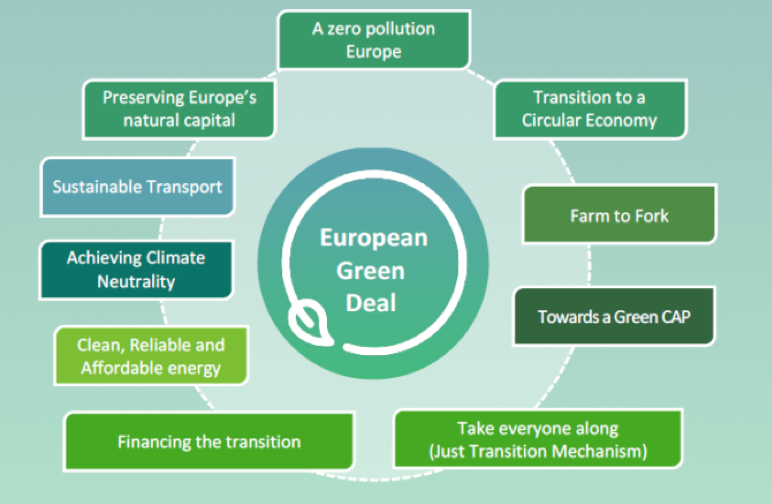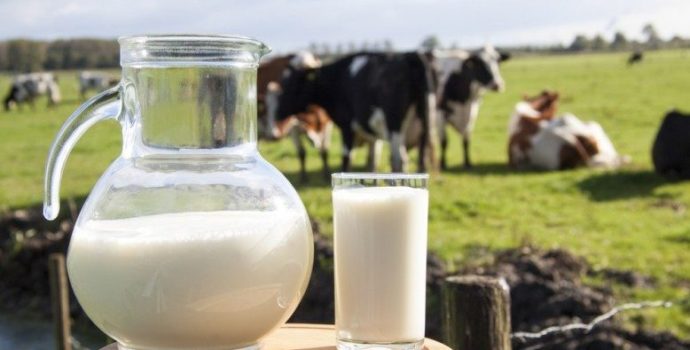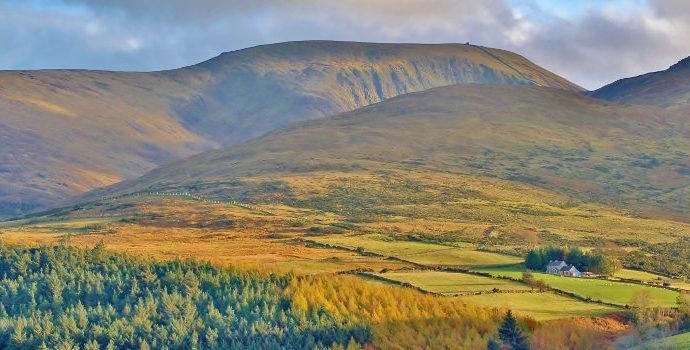Sustainability Brief – What Is the EU Green Deal?

What is the EU Green Deal?
The EU’s Green Deal is the over-arching policy framework which will guide the work programme of the new European Commission. EU Commission president Ursula Van der Leyden has spoken of it as being a “European man on the moon moment”, with “the goal of reconciling our economy with our planet”.

Figure 1: Green Deal focus areas
Specific measures proposed in the Green Deal include:
- A climate law committing the EU to achieving net-zero emissions by 2050;
- A carbon border tax;
- Up to €100bn to finance a “Just Transition”;
- Action plans to be developed by sectors including agriculture, energy, transport, energy, chemicals and construction.
The Green Deal – farming & food?
Delivering on the focus areas of Farm to Fork and Towards a Green CAP will have the greatest impact on farming and food.
The European Green Deal is proposing the following measures that will impact directly on agriculture:
- Seek to ensure high environmental and climate ambition in the reform of the common agricultural policy.
- Work with Member States and stakeholders to ensure that national strategic plans for agriculture reflect fully the ambitions of the Green Deal and the Farm to Fork Strategy.
- Present the ‘Farm to Fork’ Strategy in spring 2020, with a view to rolling-out a set of initiatives from the end of 2020, including:
- targets on reduction of chemical pesticides, fertilisers and increased organic area.
- Adoption of a toolbox for alternatives to chemical pesticides.
- Actions to develop innovative ways, including new genomic techniques, to adapt to climate change and improve sustainability of food systems.
IFA Action
IFA President Joe Healy has said that the European Commission’s Green Deal must recognise that agriculture is a commercial activity which delivers jobs, food, fuel, energy and environmental services for all European citizens.
He also highlighted that a shrinking CAP budget can no longer be used to address the growing number of asks placed on farmers, calling for an increased budget.
Joe Healy called on the EU to defend, on the basis of science, the sustainability of its agricultural model and food production systems in the face of fast rising misinformation and bashing by those with anti-farming agendas.
Finally, he called on the European Commission to ensure that the following actions are delivered:
- The Common Agricultural Policy budget must be increased to take account of inflation and to fully compensate farmers for any additional requirements placed upon them as a result of CAP reform or measures proposed in the Green Deal.
- The double standards in EU trade talks are ended. The European Commission are proposing to import thousands of tonnes of beef from deforested Amazonian regions of Brazil and other areas.
Farmers must receive the full credit for carbon that is sequestered and stored in their grassland, hedgerows and forestry.



